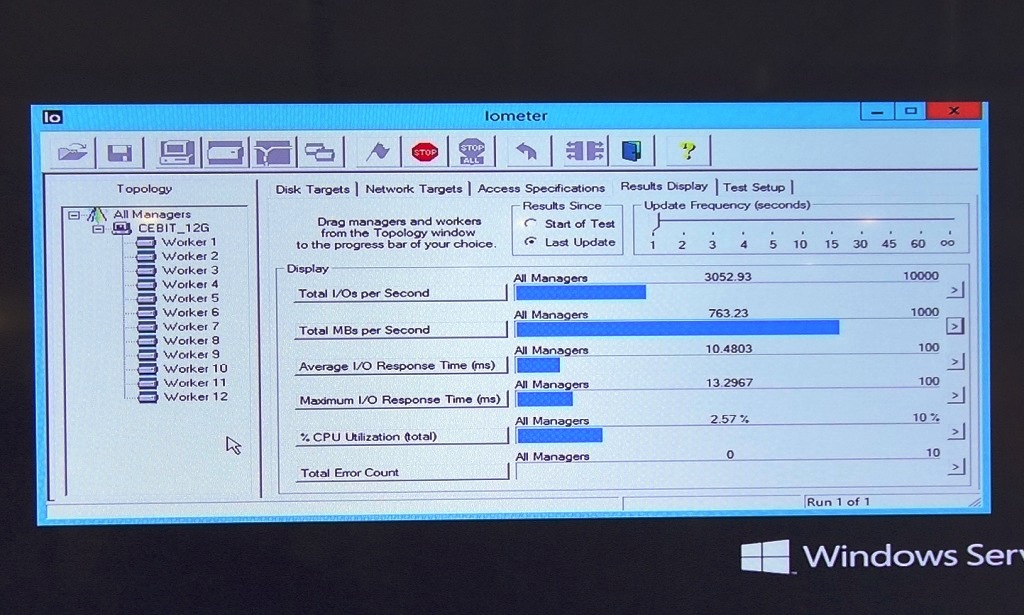You know a company is considered established when change is made and talked about worldwide. Such is the case with recent news that Seagate is dropping its 7200RPM line and rumors grow rampid. Of interest to us is Seagate’s stance on SSD development and we couldn’t count the discussions and emails we have received regarding rumored purchases or beliefs that perhaps Seagate is starting to release their HDD lines prematurely without an SSD replacemnt on the horizon.
Having just returned from a great meeting with Seagate, perhaps we can help things along just a bit. Let’s start it with a bit of eye candy though in the form factor of a new and unreleased Seagate 12Gb/s SAS SSD that was demonstated at 763MB/s. Single SSD, single controller and not in RAID…
Seagate would not give us any information with respect to interior components but did allow us a shot of the drive itself as posted below; possibly the first public showing they noted…
The number scheme does follow that of the former Pulsar release but we couldn’t help but wonder how much that Virident expertise came into effect with this SSD.
We spoke to Seagate of consumer SSD development and, indeed, we should expect to be seeing Seagate SSDs in the retail chain some time in the near future. No further information was provided and no details with respect to interior components could be attained but we did get another shot of an, as of yet unmentionable Seagate SSD. This SSD (and 15 others) was being used to demonstrate Adaptec’s new 7 series 16 port HBA. It is listed as an enterprise SSD but I would bet this just might be an attractive design for any Seagate consumer SSD release in the near future…
Last but not least we spoke of Seagates new SSHD which is expected to be a consumer release in 4-6 weeks. It is already distributing to channel partners as we speak. It is a hard drive with 8GB MLC NAND flash memory and it doesn’t contain an SSD controller per se. My opinions of hybrid hard drives in todays SSD world have always been pretty forthright. Other than a minor start time increase, I have never been able to speak to any noticeable performance difference that one could visually identify. Todays SSD can be had for less than yesterdays hard drive and at a greater capacity. I’m just saying…
Seagates Press Release does reflect capacities of up to 1TB for a 7mm ultrabook/notebook version and 2TB for that of a desktop system. It claims start times of 10 seconds in Windows 8 and up to a 30% system performance boost. As with any other on board cache, it takes a bit for the system to determine hot or frequently used data to store in the flash memory. Having 1TB in a 7mm form factor is already a bonus but if they can really pull off a visible performance boost… kudos.
 The SSD Review The Worlds Dedicated SSD Education and Review Resource |
The SSD Review The Worlds Dedicated SSD Education and Review Resource | 


I totally agree Les. There is really no place at all for Hybrid drives. Just marketing double speak.